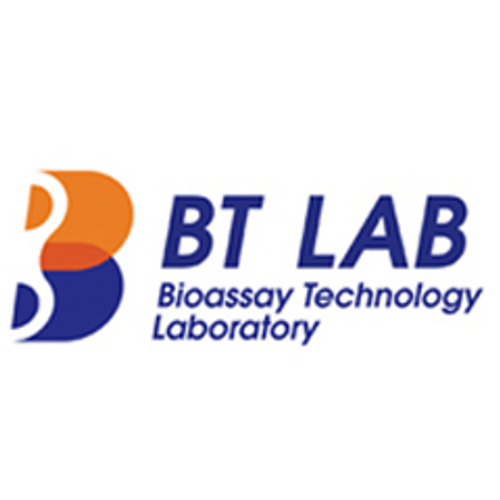Product Description
Human Permeability glycoprotein (P-gp) ELISA Kit | AE23088HU | Abebio
Species Reactivity: Human (Homo sapiens)
Abbreviation: ABCB1
Alternative Name: ABC20; CD243; CLCS; GP170; MDR1; MGC163296; P-GP; PGY1; ATP-binding cassette; subfamily B; member 1|P-glycoprotein 1|colchicin sensitivity|doxorubicin resistance|multidrug resistance protein 1
Application: ELISA
Range: 0.312-20 ng/mL
Sensitivity: 0.121 ng/mL
Intra-Assay: ≤4.2%
Inter-Assay: ≤8.8%
Recovery: 1, 08
Sample Type: Serum, Plasma, Other biological fluids
Detection Method: Sandwich
Analysis Method : Quantitive
Test Principale: This assay employs a two-site sandwich ELISA to quantitate ABCB1 in samples. An antibody specific for ABCB1 has been pre-coated onto a microplate. Standards and samples are pipetted into the wells and anyABCB1 present is bound by the immobilized antibody. After removing any unbound substances, a biotin-conjugated antibody specific for ABCB1 is added to the wells. After washing, Streptavidin conjugated Horseradish Peroxidase (HRP) is added to the wells. Following a wash to remove any unbound avidin-enzyme reagent, a substrate solution is added to the wells and color develops in proportion to the amount of ABCB1 bound in the initial step. The color development is stopped and the intensity of the color is measured.
Product Overview: P-glycoprotein is a member of the superfamily of ATP-binding cassette (ABC) transporters. ABC proteins transport various molecules across extra- and intra-cellular membranes. ABC genes are divided into seven distinct subfamilies (ABC1, MDR/TAP, MRP, ALD, OABP, GCN20, White) . This protein is a member of the MDR/TAP subfamily. Members of the MDR/TAP subfamily are involved in multidrug resistance. The protein encoded by this gene is an ATP-dependent drug efflux pump for xenobiotic compounds with broad substrate specificity. It is responsible for decreased drug accumulation in multidrug-resistant cells and often mediates the development of resistance to anticancer drugs. This protein also functions as a transporter in the blood-brain barrier.
Stability: The stability of ELISA kit is determined by the loss rate of activity. The loss rate of this kit is less than 5% within the expiration date under appropriate storage condition. The loss rate was determined by accelerated thermal degradation test. Keep the kit at 37°C for 4 and 7 days, and compare O.D.values of the kit kept at 37°C with that of at recommended temperature. (referring from China Biological Products Standard, which was calculated by the Arrhenius equation. For ELISA kit, 4 days storage at 37°C can be considered as 6 months at 2 - 8°C, which means 7 days at 37°C equaling 12 months at 2 - 8°C) .
 Euro
Euro
 USD
USD
 British Pound
British Pound
 NULL
NULL








